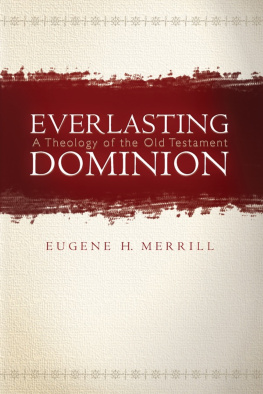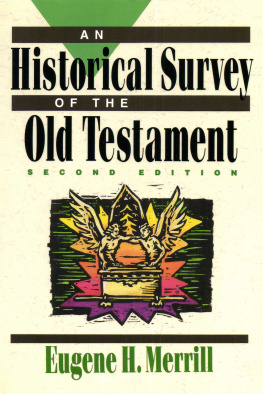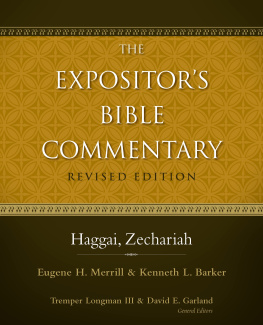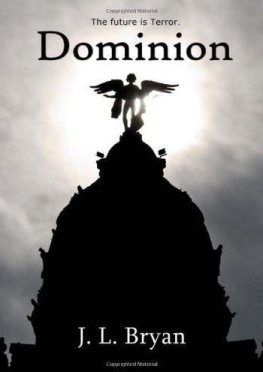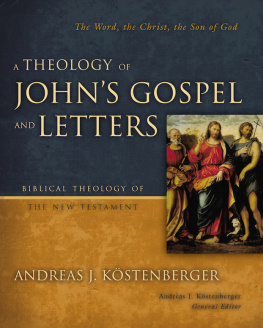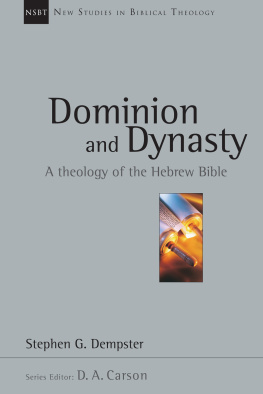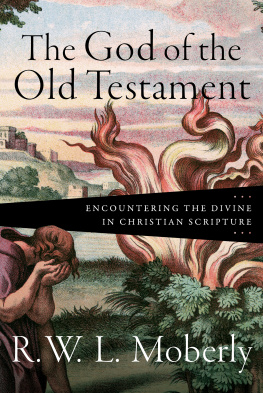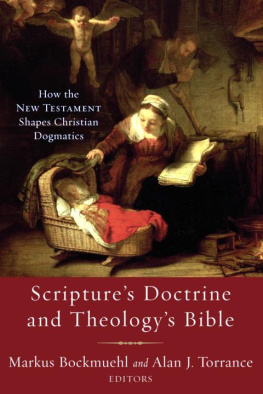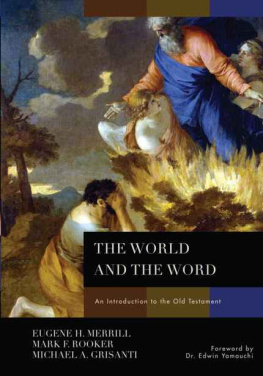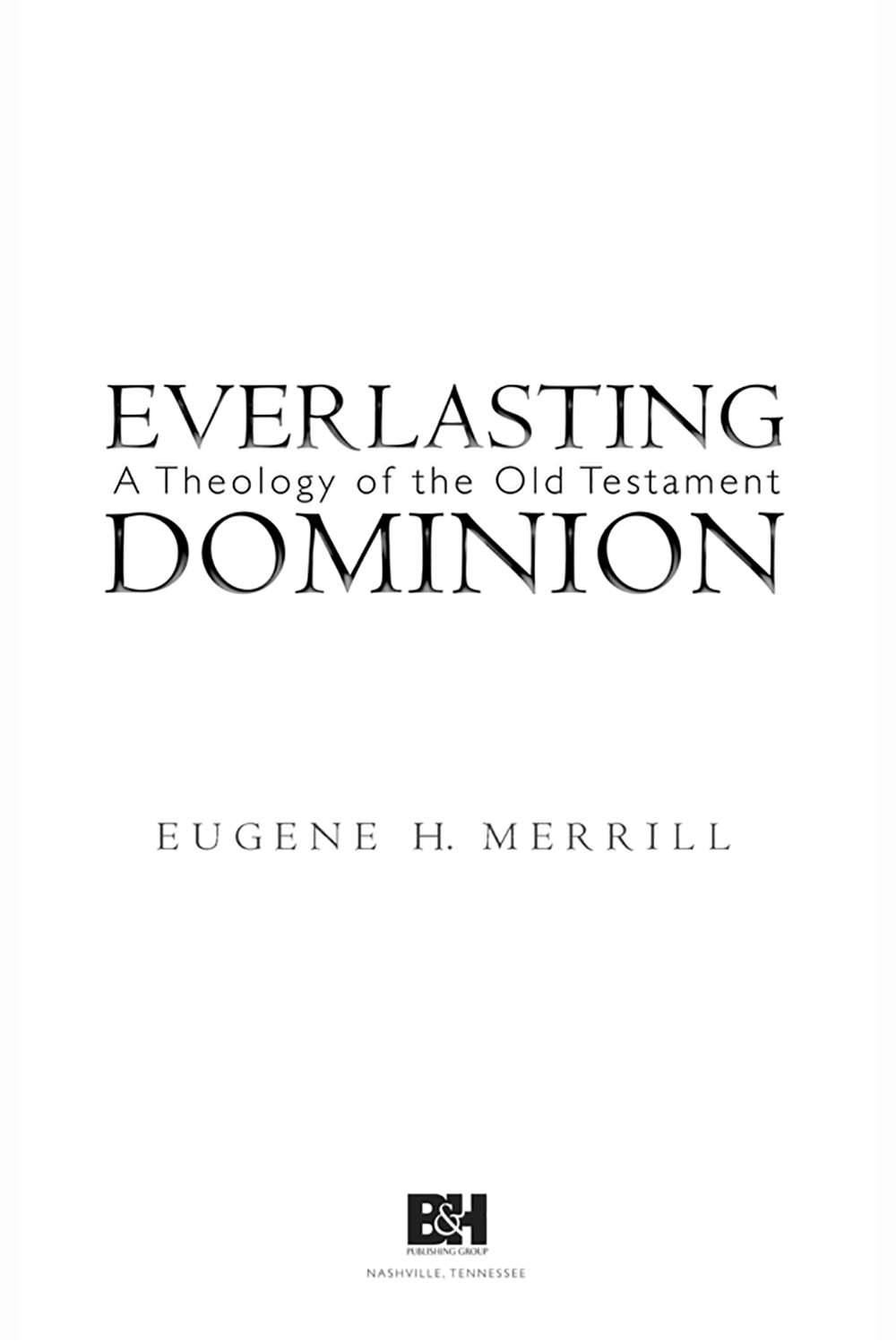Copyright 2006
by Eugene H. Merrill
All rights reserved
Printed in the United States of America
ISBN: 978-1-4336-7048-0
Published by B&H Publishing Group
Nashville, Tennessee
Dewey Decimal Classification: 230
Subject Heading: THEOLOGY / BIBLESTUDY
Unless otherwise noted, Scripture quotations are taken from the Holman Christian Standard Bible Copyright 1999, 2000, 2002, 2003 by Holman Bible Publishers. Used by permission. Other versions are identified by acronym as follows: NASB, the New American Standard Bible, the Lockman Foundation, 1960, 1962, 1963, 1968, 1971, 1972, 1973, 1975, 1977, 1995; used by permission. NKJV, New King James Version, copyright 1979, 1980, 1982, Thomas Nelson, Inc., Publishers. NIV, The Holy Bible, New International Version, copyright 1973, 1978, 1984 by International Bible Society. NLT. Scripture quotations marked NLT are taken from the Holy Bible, New Living Translation, copyright 1996. Used by permission of Tyndale House Publishers, Inc., Wheaton, Illinois 60189. All rights reserved.
Preface
For many years I have more than half seriously admonished my students that biblical theology is an old man's game. By this I mean it presupposes so many other disciplines and so much accumulation of knowledge that few scholars are prepared to undertake the task unless they have invested long, hard years in preparation of its accomplishment. Biblical theology is rather like the pinnacle of a pyramid, the finishing touches on an edifice consisting of layer upon layer of strata of learning that provide it a foundation of method and meaning. First and foremost is a modicum of familiarity with the biblical content itself, a feel for both its wholeness and its particulars. If done well, it must be done by competent control of the languages of biblical texts; for a claim to an understanding of the literature that depends solely on the translations and interpretations of others, no matter how good, tends to vitiate any sense of authority the theologian brings to his or her assignment. Finally, sound principles of exegesis and hermeneutics are among other tools that must be brought to bear as well as a deep acquaintance with the environment of Old Testament Israelits setting, its history, and its interaction with the peoples and cultures of the ancient Near Eastern world.
It would be presumptuous for me, on the one hand, to make the absurd claim to have mastered this disparate range of knowledge; but on the other hand, the now or never imperatives of life inexorably arrive when one must do the best he can with the resources at his disposal. Many a theology has been born prematurely, not allowed the moderation and mellowing of full gestation, and therefore has fallen short of its potential. Others have never seen the light of day at all for (to continue the metaphor), though well conceived, they have expired in the womb, as it were, victims of a perception on the part of their begetters that the time had not yet come to bring their dreams to reality. There exists, then, a little window between the time when one believes he has fulfilled the requisite demands of scholarly and spiritual preparation and the time he must act before the ravages of mortality close the window forever. I write this preface on my seventy-first birthday, my God-given window, praying he will receive all glory and praise in the work that follows and that all my studentspast, present, and futurewill benefit from it even if only a fraction as much as I have benefited from their own contribution to my life and learning.
Eugene H. Merrill
Acknowledgments
An author's name on a book is almost a form of false advertising because it suggests that he or she alone is responsible for its existence. In reality, a host of individuals and institutions, like so many ghostwriters, share in the endeavor and, in fact, make it possible at all. These range from family and friends who offer encouragement and put up with prolonged absence and neglect to support staff who do the drudge work of typing, proofing, and indexingunglamorous tedium to be sureto editors and publishers who expect and demand high standards and who make available their resources to ensure the accomplishment of such a worthy end.
The impetus for this work originates in none of the above, however, but in the matrix of scores of graduate students at Dallas Theological Seminary who for over thirty years have challenged my assumptions, sharpened my critical thinking, and graciously endured my constantly evolving understanding of Old Testament theology. These fellow pilgrims, impossible to name here because of their multitude, hold me in their debt; and to them this work is affectionately dedicated.
Lest I rightly be thought to be remiss in failing to acknowledge my profound dependence on others as well, I wish to thank Mrs. Chris Wakitsch for her painstaking word processing, the administration of Dallas Theological Seminary for granting a sabbatical that allowed the time necessary to prosecute the project, and Broadman & Holman Publishersin particular Leonard Goss and John Landersfor their initial acceptance of the proposal, their enthusiastic support throughout the process, and their professional expertise in seeing it through to fruition.
May the God of Abraham, Isaac, and Jacob, the Father of our Lord Jesus Christ, be pleased with this offering; and may it redound to his everlasting glory and praise.
Eugene H. Merrill
Chapter One
Introduction: The Origins, Nature, and
Present State of Old Testament Theology
To describe theology as biblical tends immediately to introduce ambiguity to the discipline, for the adjective seems to be either self-evident or redundant. How can theology be anything but biblical if it is Christian (or even Jewish) since these traditions regard the Bible as their authoritative witness to truth and since, one would think, theology is inseparable from the Bible? But the adjective is not at all superfluous, for it distinguishes biblical theology from other disciplines that are engaged in the theological enterprisedisciplines, for example, such as systematic and historical theology. The descriptors systematic and historical are also carefully chosen to suggest a certain aspect or thrust of theological study, the one emphasizing the logical categorizing of theological ideas into a coherent whole and the other the tracing of reflection on these ideas and their syntheses throughout the course of postbiblical history.
Part of the terminological confusion has to do with the grammatical point as to whether biblical is subjective or objective in its connection to theology. That is, does biblical mean that the theology is in line with biblical truth or merely that it derives from the Bible? Though ideally these perspectives should result in one and the same conclusion as to biblical teaching, in actual practice this is often not the case because though a theology may be biblical in the sense that it is not anti- or unbiblical, it may contain ideas that are extra-biblical, that is, ideas drawn from philosophy, science, history, sociology, or any number of other sources. Biblical theology, when practiced best at any rate, limits its source material to the Bible, refusing to let the Bible say more than it intends and, at the same time, not denying its voice wherever it has a message to speak.
It is clear so far that we are speaking more of a method or strategy for doing theology than of theological texts and their exposition. The question is not whether a given theology is biblically defensible but whether it derives exclusively from the Bible and is in line with the Bible's own terms and intentions. To put it another way, a proper biblical theological method is (1) one that has no preconceived ideas about biblical truth, (2) one that refuses to read extraneous theological ideas into the text, and (3) one that allows the Bible to speak for itself at every stage of its development both canonically and historically.

